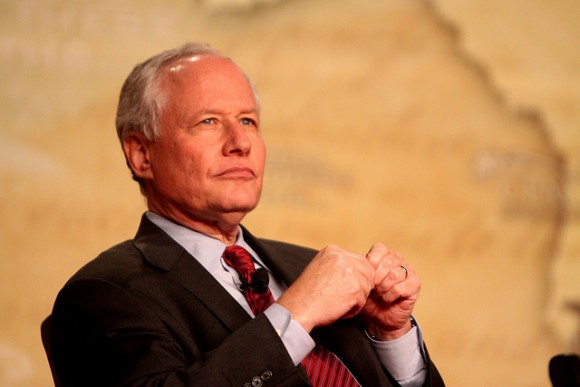More than 90 percent of Crimean voters have voted to join Russia. Putin and the rest of Moscow are praising the power of democracy, however disingenuously, and Obama and all of Washington are condemning the referendum as an illegal act.
As has been true throughout this whole crisis, the U.S. position is fundamentally hypocritical. When Washington condemns the the referendum as a violation of sovereignty and territorial integrity, Russians sort of giggle and point to Kosovo, for which NATO bombed Serbia in 1999 and which voted for full secession and independence in 2008 with full U.S. support.
The most popular reason Americans have for opposing the referendum is the fact that it was held under Russian military occupation and, therefore, how legitimate can it really be? This is a position I agree with: democratic votes should not be influenced by military occupation.
But did these same Americans condemn the democratic elections in Afghanistan and Iraq as being illegitimate because of the nefarious influence of an overbearing U.S. military occupation? Where was this criticism when Kosovo voted for independence while thousands of U.S. and NATO troops continued to base there? Have they been condemning the fact that Washington pressures democratically elected representatives in Japan to swear off any plans to move the tens of thousands of U.S. troops occupying Okinawa, despite the fact that the overwhelming majority of Okinawans call for an immediate end to that occupation?
There is a question about just how much the referendum in Crimea would have differed without Russian troops and it very well may be the case that it would not have differed much, given the large ethnic Russian majority there. The U.S. will continue, nevertheless, to condemn the vote and retaliate on the margins by digging in its diplomatic heels in Kiev and by sanctioning Russian officials (with no utility).
The reason is not one of principle, as the Obama administration claims, but of spite. Russia seems to have won this geo-political spat, and Washington isn’t going to take it laying down.
But perhaps they should. “Although Westerners (and the Ukrainian government) profess the importance of defending Ukrainian territorial integrity,” writes Taras Kuzio in Foreign Affairs, “most Ukrainians wouldn’t seem to mind letting Crimea go.”
“[M]ost Ukrainians,” Kuzio explains, “have always been ambivalent about Crimea.”
The region was transferred from Russian to Ukrainian control in 1954, and Russians still feel a much stronger sense of attachment to the region, and specifically to the port city of Sevastopol, than do Ukrainians. Some Ukrainians even believe that Crimea has a right to secede, although they may have wished that Crimea had done so in more orderly fashion. “If there is a clear majority of the people on a certain territory that do not want to accommodate themselves with the state they live in,” Ukrainian writer Mykola Riabchuk said before the Russian incursion, “they should have a right to secede, which would require some negotiations, international mediation, referendums, and post-separation settlements for national minority rights.”
The interim Ukrainian government is too weak to do anything about the referendum, even if Crimea meant enough to them to start such a dispute. The U.S. has little to no leverage and is only continuing down the road of hostility and confrontation with Russia out of spite. And whatever validity rests in the U.S. condemnation of legal violations and Russian occupation is undermined by the fact that it is entirely insincere, given America’s routine practice of precisely the policies for which they now condemn Russia.





